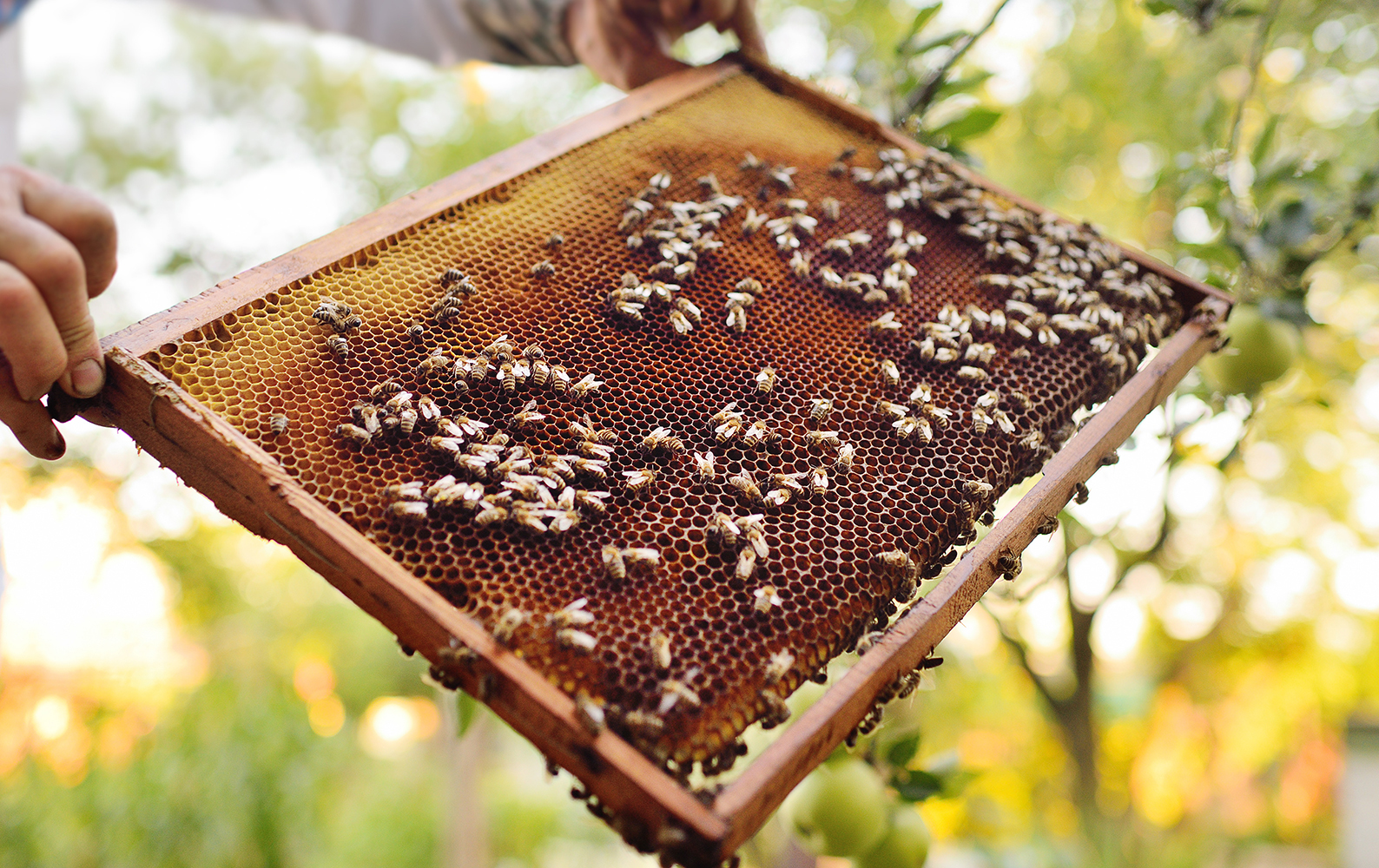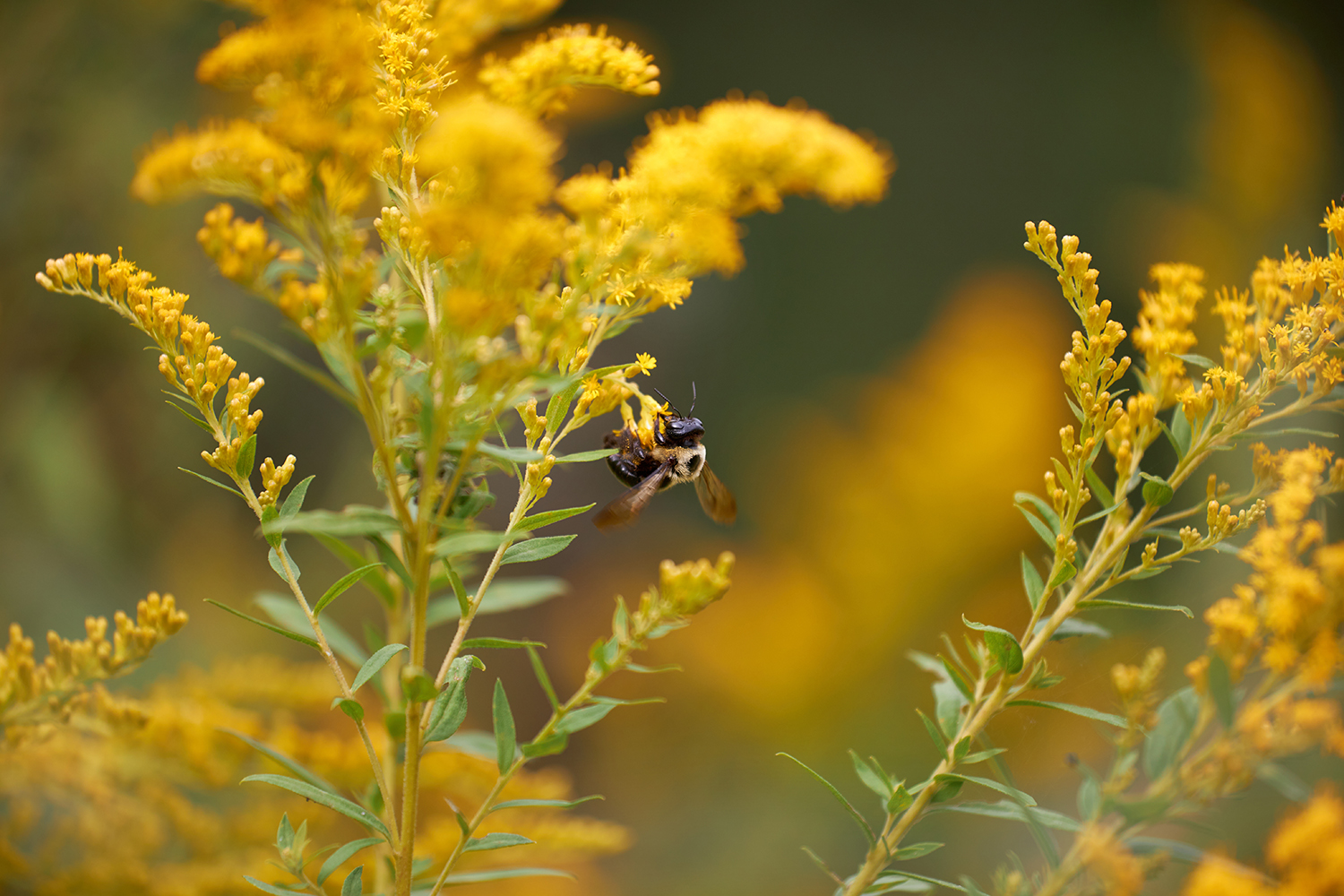by Derek Ver Helst
Bee health is getting the buzz it deserves with a new vaccine to fight American foulbrood, a fatal bacterial disease that is decimating bee populations across the country. The first-ever USDA approved vaccine for insects, along with improved, holistic ecosystem management practices, are both showing promise for protecting and rebuilding the population of these important pollinators.
The Critical Role of Bees
Bees play a critical role for the health of ecosystems around the world – including the health and security of our food systems. As honeybees consume pollen and nectar, they pollinate about a third of the world’s food crops, allowing them to grow and flower. In addition to natural occurrences, beekeepers often lease their hives and colonies to farmers to assist in annual pollinations of crops like almonds, pears, cherries, and apples, among others.

However, in recent years, bee populations have decreased at alarming rates, posing a great threat to our natural and agricultural systems. Many factors have contributed to this crisis, including parasites, habitat loss, exposure to pesticides, climate change, and disease.
A First-Of-Its-Kind Vaccine
One such disease is American foulbrood (AFB), a fatal bacterial disease affecting honeybee colonies around the world. Infection can severely weaken even a healthy and strong colony, leading to its complete collapse. Once many of the brood have died and the colony is collapsing, the hive will produce a foul odor, contributing to the name of the disease.
Previously, the only way to manage AFB was to destroy infected colonies and materials – making the new USDA-approved vaccine a much-needed innovation for supporting bee health and productivity. The vaccine is feed to the queen bee in an infused sugar mixture. She then passes the immunity down to her offspring, and over time, immunity spreads throughout the entire colony.
Ecosystem Management for Pollinator Health
While it is a revolutionary innovation, the vaccine is not a magic bullet for protecting bees, as it addresses only one cause of bee population decline. Many other natural and anthropogenic factors have contributed to the recent decline of bee populations. Understanding these factors and addressing the interaction of species in an environment is important to overall sustainability, biodiversity, and longevity goals.

By utilizing the principles of regenerative agriculture, farmers and ranchers are promoting bee health with nature-based solutions. For example, flowering cover crops and pollinator-friendly buffer plantings support pollinators, while also agronomically benefiting agricultural crops. Similarly, improved soil health practices can lead to reduced pesticide use, which protects these beneficial insects.
With these improved management practices, agriculture is specially positioned to help mitigate and reverse environmental degradation, having a profound and positive impact – not just on bees, but on the ecosystem as a whole.
Learn More and Next Steps
Farmers, NGOs, government partners, and companies worldwide are investing in the natural solutions that agriculture offers for pollinator health.
Certifications: Brands are working toward certifications like Bee Better Certified or Bee Friendly Farming Certified, while other companies have made significant commitments to support and source from bee-friendly farms. See how Blue Diamond and KIND are supporting pollinators.
Improved Practices: Research suggests that pollinator-friendly plantings yield agronomic, economic, and environmental benefits on farms. Learn more about agriculture’s role in pollinator conservation and ecosystem service delivery.
AgSpire works across the agriculture value chain to develop and implement sustainable agriculture projects that promote pollinator health, among other ecosystem benefits like soil health, carbon capture, and water conservation. Contact Us to visit with our landowner advisory team and learn more about supporting bee health.
About the Author
DEREK VER HELST
Senior Conservation Agronomist
Derek has over 15 years of experience working with landowners and corporations to design, manage, and validate research trials, maximizing short- and long-term crop outputs. With a continued passion for conservation and the natural ecosystem, he is focused on the natural symbiosis organisms have with one another in the environment. Always eager to learn, he is continuously expanding his knowledge of soil health, chemistry, and pest disease management.
Derek holds a bachelor’s degree in Biology from South Dakota State University and a master’s degree in Agronomy from Iowa State University. He is also a Certified Crop Advisor and Technical Service Provider through NRCS.
 Visit the SustainAg Network
Visit the SustainAg Network